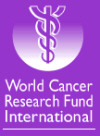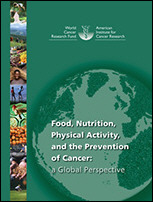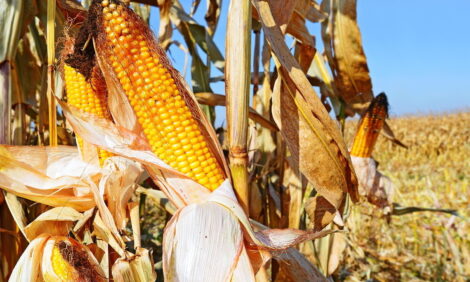



Red Meat and Cancer - Fact or Fiction?
A World Cancer Research Fund report published at the end of last year concluded that people should eat less than 500 grams or 18 ounces of red meat per week, writes TheCattleSite Senior Editor, Chris Harris.The report also advised that very little processed meat should be eaten.
These are harsh headlines for the meat industry and they have been capitalised upon by anti-meat lobbies.
The bold claim is that eating red meat can cause cancer.
This is the sensational headline that some of the media have latched onto. It is the headline that causes anxiety and it is the headline that sells the popular press.
However, the science behind the headline is perhaps not so stark as may first appear and there have also been other studies that have countered and negated the WCRF report.
The WCRF report took an expert panel from around the world to look at a vast quantity of reports that looked at the possibilities of different agents being associated or causing different cancers.
Another expert report re-examined the papers that were placed before the WCRF panel and produced conflicting results.
According to Tim Byers from the University of Colorado, a member of the WCRF expert panel: "There were thousands and thousands of papers to interpret and the panel found the observations similar from country to country."
The report that the panel, in which Prof Byers was a member, is due to be the basis of a policy report for the WCRF to be published in November this year.
The main contributing factor the panel found in examining the reports from around the world was that obesity is the main contributor to cancer.
"Obesity is the most important factor for cancer," Prof Byers told the recent convention of the National Cattlemen's Beef Association in the USA.
"Total body fatness is the main risk factor for colon cancer."
And he added: "Obesity is a stronger risk factor for men than women when it comes to colorectal cancer."
Prof Byers said that there were differences around the world and while the situation is improving in some countries in others it is getting worse. He claimed that the main contributing factor for this is differences in lifestyle.
The WCFR research claims to show that the main risk was from eating red meat and that there was a higher risk from those who ate more red meat than those who had a low red meat intake. The analysts said there was a 20 per cent greater risk. They also said that examination and comparison of all the reports they studied showed that there was a greater risk from red meats than white meats.
The evidence for these conclusions were based on an examination of 16 cohort studies and 71 case control studies, which showed that the case control studies for countries such as Africa and Australia proved significant.
For processed meats 14 cohort studies were examined and 44 case studies. These, according to the panel experts showed a higher degree of risk of cancer.
Prof Byers said that the same iron content of red meat increases the colon cellular cytotoxicity and proliferation and the different cooking methods produce polycyclic aromatic hydrocarbons from combustion and heterocyclic amines from high temperature. The risk from processed meats comes from nitrosamine formation and other chemicals from smoking and slat preservation.
The recommendations from the WCRF are to:
- Avoid eating meat
- Be active
- Eat less energy dense food
- Eat more plants
- Drink little or no alcohol
- Avoid poorly preserved foods
- Do not rely on nutritional supplements
- Breast feed.
The recommendation over red meat is to eat less than 500g a week. However, Prof Byers said that this is cooked meat and the equivalent to eating about 25 ounces or about a quarter of a pound of pre-cooked red meat per day.
The American Cancer Society recommendations are to:
- consume a healthy diet
- choose foods in amounts that help maintain a healthy weight
- eat two and a half or more cups of variety of vegetables and fruit each day
- choose whole grains in preference to processed
- limit consumption of processed and red meats
- if you drink alcohol, do it in moderation.
A counter study, however, by independent analysts, Exponent, drew completely different conclusions from their epidemiological study of red meat and cancer.
Dr Dominick Alexander from Exponent said that the analysts had examined the full body of studies and had made every effort to capture all the data.
However, he said that although the WCRF report had looked at a series of studies analysing meat consumption, there was concern over the definition of meat; how the different studies looked at different red meats and whether they were processed or not.
Dr Alexander said that there were questions over whether the reports were talking about animal fat or protein, how the meat was cooked and how well cooked the meat was.
"Universal definitions of red meat or processed meat were not available as scientific variables," said Dr Alexander.
"For example, in three different studies red meat was defined as:
- beef, pork or lamb as a main dish.
- beef, pork ham, liver, smoked meats, frankfurters, sausage, fried bacon, fried hamburger.
- red meat (undefined)."
He added: "When considering processed meat the picture is even more varied and convoluted."
There were also concerns over dietary patterns between different countries and also genetic factors.
Dr Alexander said that account had to be taken of the degree of risk. One of the report's studies (Flood et al. 2003) concluded: "This study provided no evidence of an association between either meat or fat (or any other subtypes) and colorectal cancer incidence…" However, the sentence did conclude: "…but the authors cannot rule out the possibility of a modest association."
Dr Alexander said that the epidemiological study looked at all the data - the ,medium levels of consumption as well as the highest and lowest levels.
He said that they looked at whether the studies conducted by the WCRF could have been confounded by outside factors and whether there was any bias in the studies.
"We had a 100 per cent data validation process, looking at 10,000 data points," said Dr Alexander.
And he added: "The process is on going."
Dr Alexander said that the research found no conclusive factors for and association between red meat and cancer.
He said the examinations of the data in the opinion of the Exponent research found that the epidemiological evidence showed that the conclusions were based on limited data and there was no apparent patterns of association in some cases.
The research found different patterns according to gender and the conclusions for men in particular should be interpreted with caution.
"In most cases the studies do not support statistically weighted risk," said Dr Alexander.
David Klurfeld from the USDA Agricultural Research Service said that the WCRF report was subjective and was down to individual views.
He said that the studies were not conclusive and he felt that the data was not strong enough to support the numbers.
He said there was confounding evidence, because, he questioned whether, because eating a lot of meat was associated with a high intake of fat, the risk could be down to an inadequate intake of fibre, folate and other nutrients.
He also asked whether other lifestyle activities had been taken into consideration such as the consumption of tobacco ad alcohol, weight concerns, pollution, pharmaceuticals and stress.
He said the evidence was limited because of different lifestyle patters and the interaction of nutrients.
He said that there were still questions that needed to be answered such as:
- Is charred or smoked meat a problem?
- Is a low intake of fruit and vegetables the problem?
- Is a low intake of vitamins and minerals a problem?
- Are only some people genetically susceptible?
- Is high red meat intake a problem?
- Or, is a high red/processed meat intake a marker for a set of lifestyle characteristics that increase cancer risk?
Mr Kurfeld said that while some organisations such as the American Cancer Society had recommended a limit in the consumption of red and processed meats as part of a normal diet and had advised to eat lean cuts of red meat and recommended different methods of cooking, the National Cancer Institute in November last year recommended "a diet low in fat and high in fibre, fruits and vegetables" as a way of preventing colorectal cancer.
However, he added the Institute made no mention of red or processed meats.




